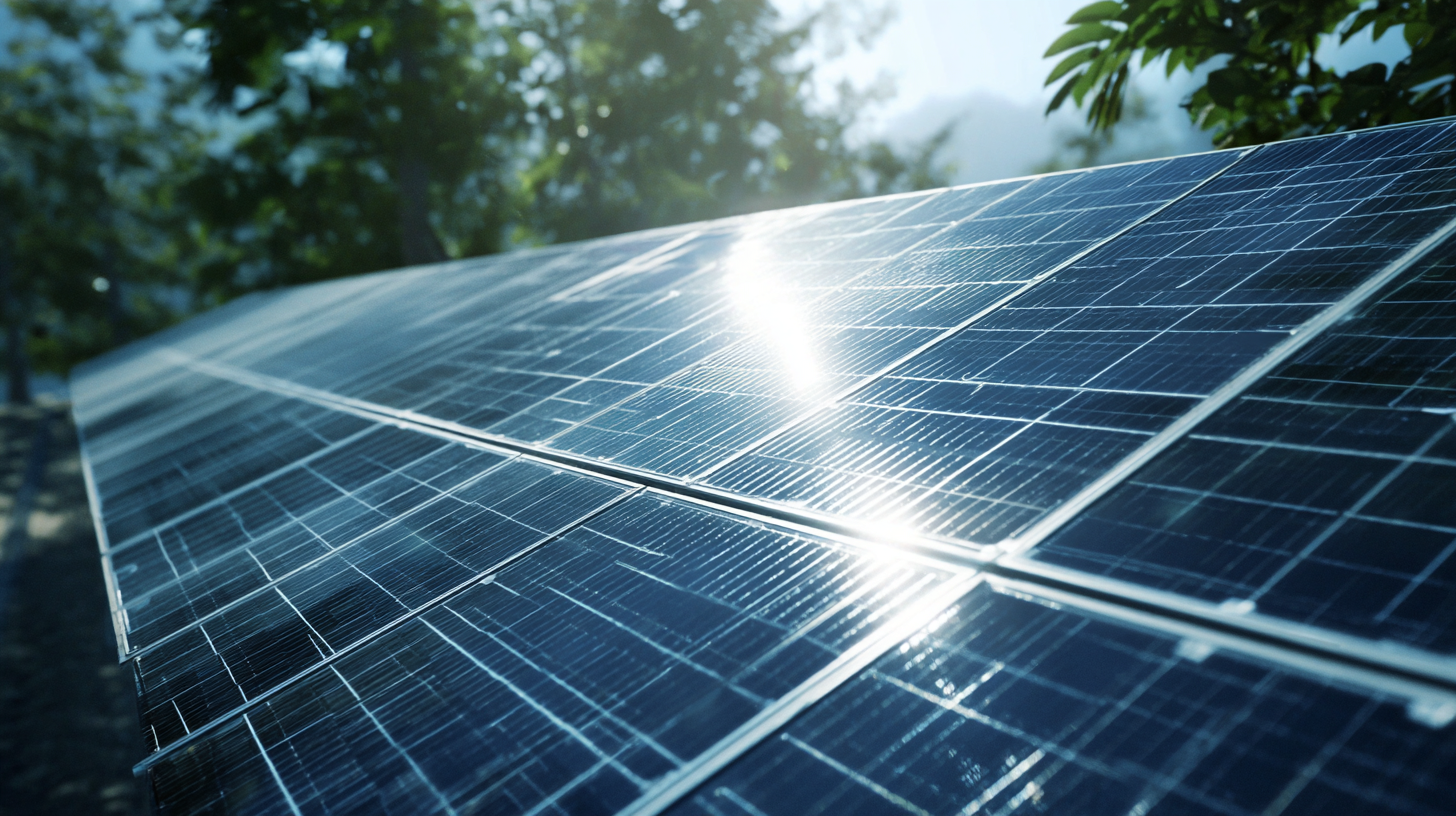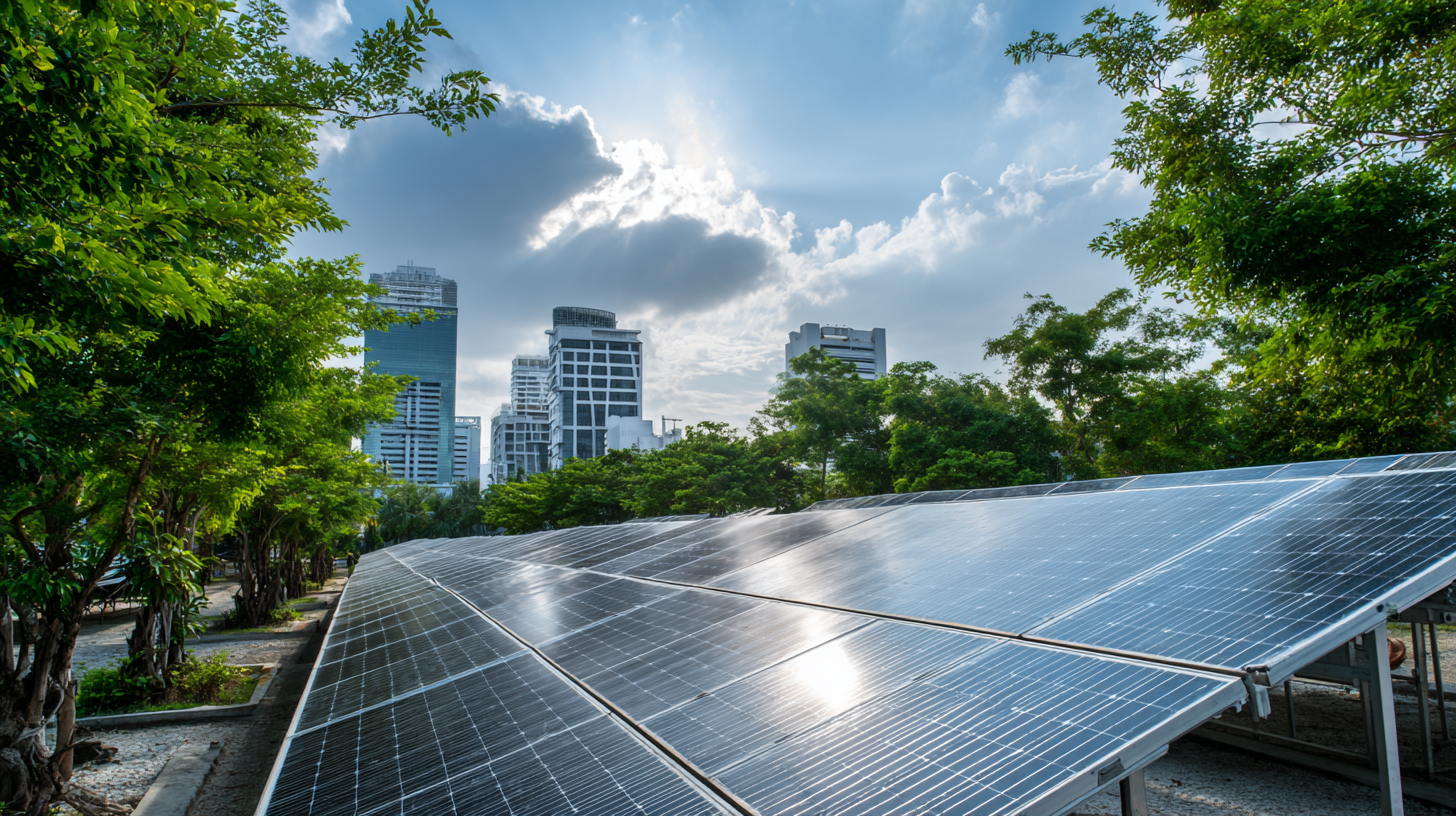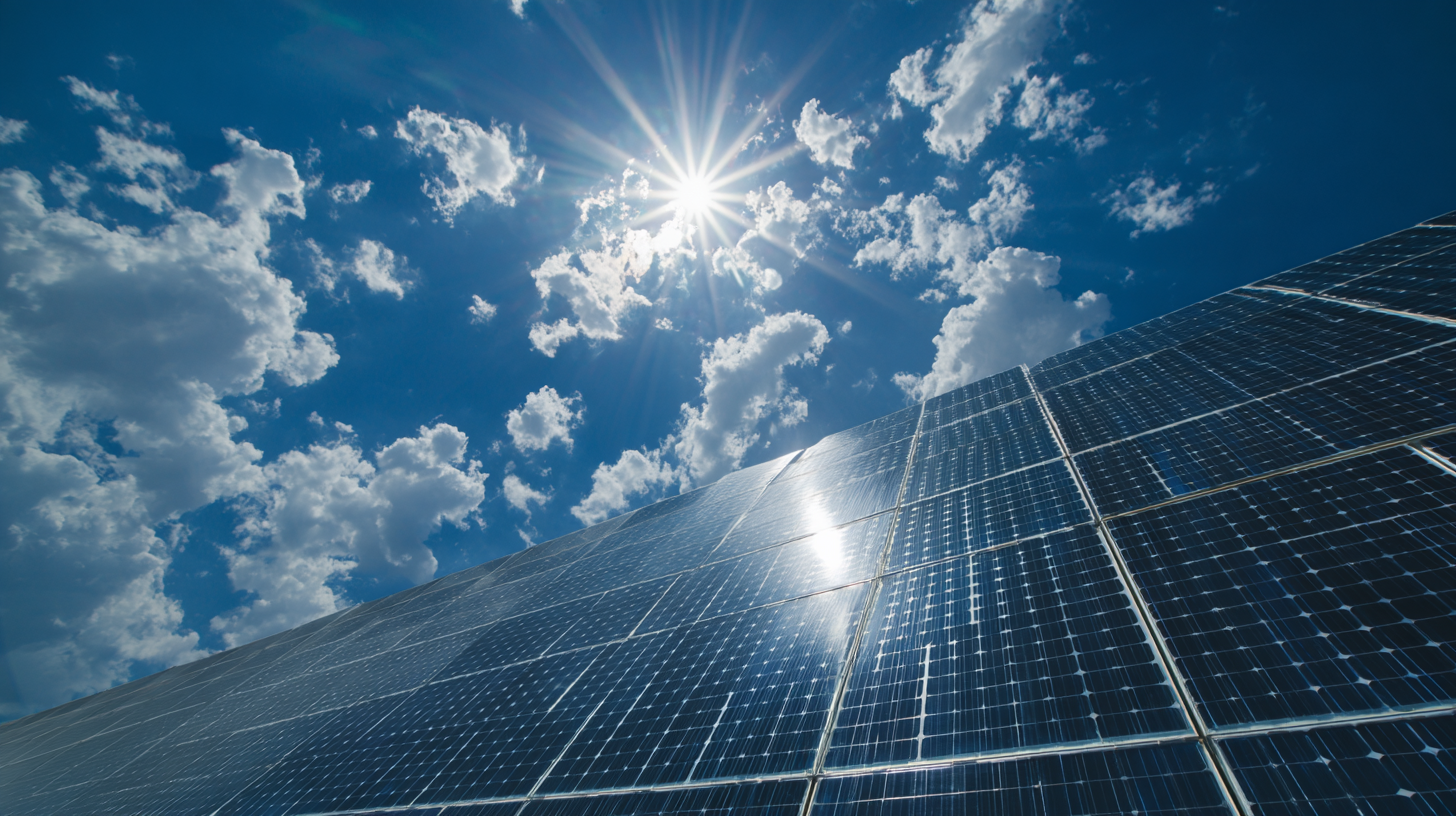Advantages of Choosing the Best Solar Panels for Sustainable Energy Solutions
In an era where sustainable energy solutions are becoming increasingly urgent, the choice of solar panels plays a pivotal role in harnessing the power of the sun effectively. The advancements in solar technology, particularly from world-class manufacturing facilities in China, have led to the production of exceptionally high-quality solar panels that not only maximize energy efficiency but also offer lasting durability. By selecting the best solar panels, consumers can significantly reduce their carbon footprint while enjoying lower energy costs and greater energy independence. This blog will explore the numerous advantages of investing in superior solar panel technologies, highlighting how they contribute to a more sustainable future and meet the growing demand for renewable energy worldwide.

Key Factors to Consider When Selecting Solar Panels for Your Home
When selecting solar panels for your home, several key factors are essential to ensure you make the best choice for sustainable energy solutions. One primary consideration is the efficiency and longevity of the panels. Opting for higher-tier solar panels can guarantee better performance, often maintaining efficiency for over 25 years, while lower-quality options might see significant drops in performance within a few years. Moreover, advancements such as smart solar panels that integrate with home energy management systems provide real-time monitoring and control, maximizing energy output and consumption.
In addition to panel quality, the location and energy needs of your home are crucial. For instance, in Germany, innovative designs for balcony solar panels allow residents to generate electricity even in smaller spaces, making solar energy solutions more accessible and budget-friendly. Local initiatives in places like Spain have shown that community efforts can enhance the adoption of solar technology, turning public facilities into sustainable energy hubs. When considering solar panels, it's important to factor in local trends and technological innovations that can impact your home's energy efficiency, ensuring a sustainable energy solution tailored to your needs.
Advantages of Choosing the Best Solar Panels for Sustainable Energy Solutions
Types of Solar Panels: Comparing Efficiency, Cost, and Durability
When it comes to choosing solar panels, understanding the types available and their respective efficiencies, costs, and durability is paramount to maximizing your investment in sustainable energy. Generally, the three main types of solar panels are monocrystalline, polycrystalline, and thin-film. Monocrystalline panels, known for their high efficiency rates of around 15-22%, offer the best performance per square foot, making them ideal for limited spaces. However, they may come with higher upfront costs, typically ranging from $1 to $3 per watt.
Tips: When selecting solar panels, consider your energy needs and space available. If you have limited roof space, investing in high-efficiency monocrystalline panels may provide better returns over time, despite their higher initial costs.
Polycrystalline panels, while slightly less efficient (13-16%), tend to be more affordable, costing between $0.70 to $1.50 per watt. They are a great option for budget-conscious consumers who still want a dependable solution. Thin-film solar panels, albeit less efficient (9-12%), excel in versatility and lightweight applications, making them suitable for unconventional installations.
Tips: Always look for panels with a good warranty—typically 25 years or more—indicating the manufacturer's confidence in their product's durability. Additionally, comparing energy output versus cost will help ensure you make an informed decision that aligns with both your budget and sustainability goals.
Long-Term Benefits of Investing in High-Quality Solar Technology
 Investing in high-quality solar technology offers numerous long-term benefits that extend beyond mere energy savings. According to the National Renewable Energy Laboratory, high-efficiency solar panels can have an average lifespan of 25 to 30 years, which means homeowners can generate clean energy for decades. Furthermore, premium solar panels often come with better warranties, typically ranging from 25 to 30 years, ensuring that your investment is protected over the long run. This longevity not only enhances energy independence but also contributes to a considerable reduction in carbon footprint, as these panels are designed to generate more power in lower light conditions.
Investing in high-quality solar technology offers numerous long-term benefits that extend beyond mere energy savings. According to the National Renewable Energy Laboratory, high-efficiency solar panels can have an average lifespan of 25 to 30 years, which means homeowners can generate clean energy for decades. Furthermore, premium solar panels often come with better warranties, typically ranging from 25 to 30 years, ensuring that your investment is protected over the long run. This longevity not only enhances energy independence but also contributes to a considerable reduction in carbon footprint, as these panels are designed to generate more power in lower light conditions.
Moreover, the initial cost of high-quality solar panels can be offset by their superior performance and reliability. A report by Bloomberg New Energy Finance indicates that premium solar technology generates about 10-20% more energy than lower-cost alternatives, resulting in faster payback periods. This is particularly critical as energy prices continue to rise; locking in lower energy costs with efficient solar solutions not only stabilizes expenses but also increases property value over time. Thus, choosing the best solar panels is not merely a financial decision but also a commitment to sustainable energy practices for future generations.
Environmental Impact: How the Right Solar Panels Reduce Your Carbon Footprint
The choice of solar panels significantly influences their environmental impact, particularly in reducing one's carbon footprint. According to a 2023 report by the International Renewable Energy Agency (IRENA), switching to solar energy can cut carbon emissions by up to 80% compared to traditional fossil fuels. The efficiency and material composition of solar panels play crucial roles in their ability to harness solar energy effectively, thus minimizing the reliance on polluting energy sources.

For example, high-efficiency solar panels made from monocrystalline silicon utilize approximately 20-25% of solar energy, significantly more than their polycrystalline counterparts, which generally yield around 15-20% efficiency. This increased efficiency translates to less space needed for installation, reducing land-use impacts and preserving natural habitats. Furthermore, lifetime assessments reveal that advanced solar panels can produce 30 times more energy than the total amount of energy required for their manufacturing, installation, and disposal. Such data underscores the importance of selecting the right solar technology for maximizing environmental benefits and advancing sustainable energy solutions.
Understanding Warranties and Support for Your Solar Energy System
When investing in solar energy systems, understanding the warranties and support associated with your solar panels is crucial. According to a report by the National Renewable Energy Laboratory (NREL), quality solar panels typically come with warranties ranging from 25 years for performance and 10 to 15 years for product defects. This long-term assurance not only covers the panels' functionality but also reflects the manufacturer's confidence in their product's durability. For homeowners seeking sustainable energy solutions, knowing these warranty terms can help mitigate risks associated with equipment failure or underperformance.
Another essential aspect is the available customer support and maintenance services. A study conducted by Wood Mackenzie Power & Renewables found that more than 40% of solar system owners experience issues post-installation, often due to a lack of adequate support. Reliable manufacturers offer comprehensive customer service that includes installation guidance and troubleshooting, which can significantly enhance the long-term performance of your solar energy system. By choosing top-rated brands that prioritize customer support, you ensure continued assistance and resolution of any future operational challenges, ultimately leading to a more efficient and sustainable energy solution.